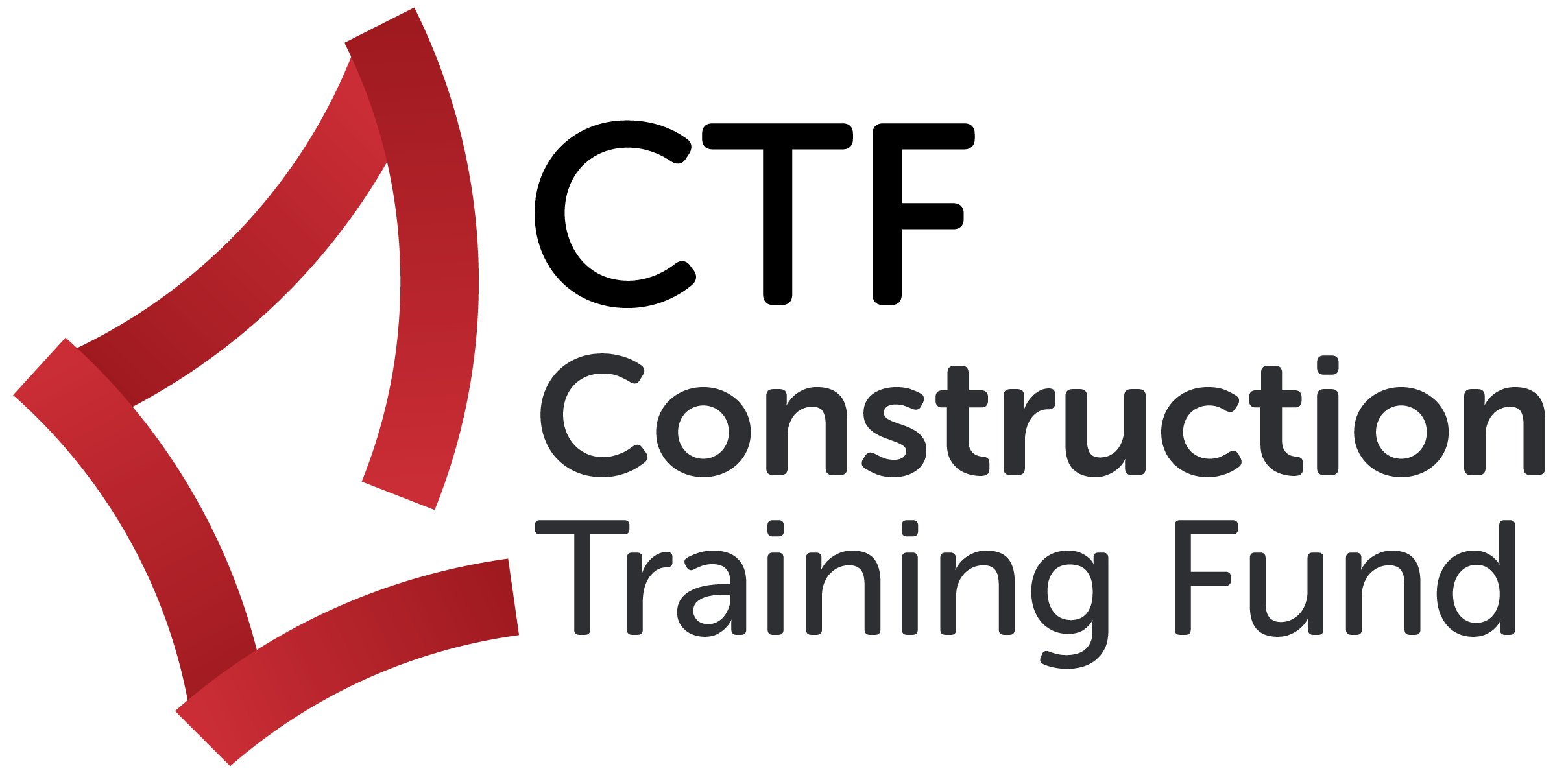Information Statement
The Building and Construction Industry Training Board (the Board) is committed to sharing information by making agency information more accessible.
The Freedom of Information Act 1992 (FOI Act) gives members of the public the right to access our documents, subject to some limitations. It also lets people seek changes to their personal information if they feel it is inaccurate, incomplete, out of date or misleading.
It is our aim to make information available promptly and at the least possible cost, and where possible we attempt to provide documents outside of the Freedom of Information (FOI) process.
Before submitting a FOI request, you are encouraged to contact us to discuss whether we hold the relevant documents.
Our Structure and Functions
The role of the Board is described in the Building and Construction Industry Training Fund and Levy Collection Act 1990 (the Act), as to establish a fund to be used to improve the quality of training and to increase the number of skilled persons in the building and construction industry, to establish a Building and Construction Industry Training Board (the Board) to administer the fund and to collect the building and construction industry training levy, and for connected purposes.
The Board was established in 1991 under the Act. The Board directs the operations of the Construction Training Fund (CTF) to administer the functions of the Act.
The CTF structure involves teams focussed on business services, skills development, communications and operations and executive services. The Annual Report outlines details of our services and functions.
The CTF collects the building and construction training levy to increase the number of skilled persons in the building and construction industry and to improve the quality of training.
The other pieces of legislation the agency is responsible for includes:
- The Building and Construction Industry Training Levy Act 1990
- The Building and Construction Industry Training Fund and Levy Collection Regulations 1991
The Minister responsible for the CTF is the Minister for Energy and Decarbonisation, Manufacturing, Skills and TAFE; Pilbara.
Our Mission
The CTF’s mission, in collaboration with our stakeholders, is to offer initiatives to develop and sustain an agile construction workforce; and to advocate construction as a career for all.
The CTF’s vision, is that the construction industry is a career of choice, and is safe, skilled, and sustainable.
The CTF’s values are to act with Integrity, Leadership, Collaboration and Agility.
Public Participation in the formulation of our policy and the performance of our functions
Our statutory functions, as stated in section 7 of the Act, are directed at the administration of the fund, efficient collection of the levy, and the allocation of resources of the fund. The avenues for public participation in the formulation of our policies and the performance of our functions are limited.
The CTF does undertake consultation with our stakeholders. Our stakeholders include all sectors within the Western Australian building and construction industry; professional associations representing the industry; construction unions; local government authorities; the community and the Western Australian Government.
The CTF holds regular consultation meetings with stakeholders through a Construction Industry Strategic Group.
The CTF also holds an annual stakeholder forum where industry stakeholders contribute to the CTF’s annual Operational Plan.
The CTF has undertaken to communicate matters of importance to the industry and to update stakeholders when new services are introduced, or major policy changes are made.
Stakeholders and members of the public may make comments regarding policy at any time. The CTF has a Customer Service Charter and Complaint Handling Policy. This policy ensures customers will have access to a formal dispute resolution process, which will allow complaints to be resolved within defined timeframes.
Documents we hold
The Freedom of Information Act 1992 is focused on information contained in documents and only to those documents that are already in existence. The CTFs information systems capture information in electronic, paper-based, and digitised formats. Information captured includes correspondence, applications, submissions, administrative files.
Our records include:
- Correspondence we receive
- Corporate Information
- Research and consultation
- Policies and procedures
- Annual and Operational reports
You can access many of our documents free of charge on the CTF website.
A summary of documents held by the CTF, is located at Appendix A.
If you would like access to a specific document which is not published online, please telephone our FOI Coordinator on (08) 9244 0100 or email them at info@ctf.wa.gov.au with your request, before lodging an FOI application.
Internal manuals
Information related to the performance of our functions including processes and procedural guides are published on our website.
If you would like access to a specific document which is not published online, please telephone our FOI Coordinator on (08) 9244 0100 or email them at info@ctf.wa.gov.au with your request.
Freedom of Information Applications
To request access to documents under the Freedom of Information Act 1992, applications for information must be:
- in writing and state that the request is made under the FOI Act;
- contain enough information so that the requested documents can be identified;
- not form part of a letter or email about another subject
- provide an Australian address to which notices can be sent;
- provide a telephone number or email address so we can contact you; and
- be lodged with an application fee if required to the CTF.
An application is not considered to be a formal application until all these requirements are met. Failure to do so may result in delays to an application being processed.
Proof of identity is required if seeking access to personal information; there will be no fee for this service.
If requesting access to documents on behalf of another person, written authorisation from that person permitting access to the documents is required.
If applying for access to documents of a deceased person, proof of identification is required, showing relationship to the person (e.g. birth certificate, marriage certificate or a death certificate), and your personal identification. If you are not the closest relative, written authorisation from the closest relative permitting access to the documents must be produced.
If seeking access to documents provided to the CTF by third parties, the third party will be consulted for permission to release the documents.
Amending personal information
If personal information held by the CTF is considered to be inaccurate, incomplete, out of date or misleading, applications must be made in writing to the CTF to have the information amended, providing details and documentation in support of the claim, giving reasons for holding that belief and details of the amendment.
Applications must also state how the amendment is to be made by either:
- Altering the information.
- Striking out or deleting the information.
- Inserting information; or inserting a note in relation to the information.
The applicant will receive a written notice of the CTF’s decision on the application for amendment within 30 days.
Lodging applications
Applications and enquiries should be addressed to:
Director, Communications and Operations, (FOI Coordinator)
By post: Construction Training Fund, PO Box 303, CLOVERDALE WA 6985
By email: info@ctf.wa.gov.au
In person: CTF, 104 Belgravia Street, Belmont, 6104
Applications will be acknowledged in writing and the CTF will provide a response within 45 days of the lodgement of the application unless more time is required to complete the application.
Fees and Charges
Under the FOI Act, no application fee or charges apply if you are seeking personal information that is just about you.
If charges are applied, the FOI Coordinator will advise the applicant to determine whether they wish to proceed with the application. Alternatively, the applicant can request an estimate of the charges prior to lodging an application. An advance deposit may be required pursuant to section 18(1) of the Act. The applicant will be advised at the time where a deposit will be required.
A schedule of fees and charges has been set under Schedule 1 of the Freedom of Information Regulations 1993.
| Type | Fee / charge |
| Personal information about the applicant | No fee |
| Application fee (for non-personal information) | $30.00 |
| Charge for time taken by staff dealing with an application | $30.00 (per hour or pro rata for a part of an hour) |
| Access time supervised by staff | $30.00 (per hour or pro rata) |
| Photocopying staff time | $30.00 (per hour or pro rata) |
| Per photocopy | 00.20c |
| Time taken by staff transcribing information from tape, film, computer or other device | $30.00 (per hour or pro rata) |
| Duplicating a tape, file, or computer information | Actual cost |
| Delivery, packaging, and postage | Actual cost |
Notice of Decision
The notice of decision will be issued within 45 days of the date of lodgement of the FOI application.
The decision will include details such as:
- The date the decision was made.
- The name and designation of the officer who made the decision.
- If the document is an exempt document, the reasons for classifying the matter exempt; or the fact that access is given to an edited document.
- Information on the right of review and the procedures to be followed to exercise those rights.
Pursuant to section 100 of the Freedom of Information Act 1992, the Director Communications and Operations is the FOI decision maker for the CTF.
Rights of review
Internal review
If you disagree with a decision to deny or partially deny access to information, a request for internal review can be lodged within 30 days of receiving the decision notice to the CTF’s Chief Executive Officer, giving details of the decision to be reviewed and an address in Australia to which notices can be sent. The Chief Executive Officer’s decision will be advised within 15 days of receipt of the application. There is no charge for lodging an internal review.
External review
After an internal review, if you still disagree with the decision, you can lodge a complaint with the Information Commissioner within 60 days of receiving the review decision notice. It must be in writing and include your address, give particulars of the decision to be reviewed, and a copy of the decision. There is no charge for lodging a complaint with the Information Commissioner's office.
Decisions of the Information Commissioner are final and binding. Parties to the proceedings have the right to appeal any decision to the Supreme Court of Western Australia on a question of law only.
Contact the Information Commissioner’s office for any further information about the FOI process.
Office of the Information Commissioner
Albert Facey House
469 Wellington Street
PERTH WA 6000
Phone: (08) 6551 7888
Fax: (08) 6551 7889
Freecall (WA Country): 1800 621 244
Email: info@foi.wa.gov.au Web: www.foi.wa.gov.au
Appendix A
Documents held by the Construction Training Fund
| Documents | Available outside the FOI process | FOI application required |
| Annual reports (available on web) | Yes | No |
| Code of Conduct | Yes | No |
| Policies and procedures regarding levy collection and program eligibility | Yes | No |
| Operational plans | Yes | No |
| Corporate brochures | Yes | No |
| Construction Industry workforce and statistical snapshots | Yes | No |
| Corporate records | No | Yes |
| Internal manuals | No | Yes |
| Information newsletters | Yes | No |
| Research reports | Yes | No |
| Correspondence | No | Yes |
| Board papers | No | Yes |
| Construction Industry Strategic Group papers | No | Yes |
Last modified on:

